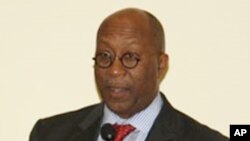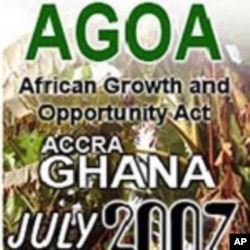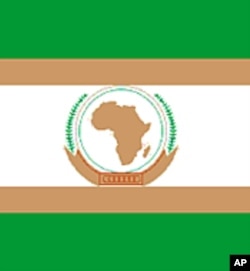The U.S. Trade Representative Ambassador Ron Kirk has said the United States is committed to partnering with Africa to address the challenges of poverty, health, education, conflict, governance, and economic development.
Ambassador Kirk’s comments come as the United States this week hosts the ninth U.S.-Sub-Saharan Africa Trade and Economic Cooperation Forum, also known as the Africa Growth and Opportunity Act (AGOA) Forum.
Ambassador Kirk said the first decade of AGOA has transformed U.S.-Sub-Saharan Africa relationship.
“I think the most important achievement to date has been the transformation of relationship between the United States and Sub-Saharan Africa from one that I think many Africans were uncomfortable with, the notion of a paternalistic aid-based relationship to one that is based on a true partnership and common goals to build a more stable economic and investment environment in Africa,” he said.
Enacted into law in 2000, AGOA is the U.S. government’s trade preference program for Africa.
Ambassador Kirk said trade between the United States and Africa has more than doubled during the first decade of AGOA.
“I think AGOA has been a success by any measure. Two-way trade between the U.S. and Africa usually ranges between $64 and $70 billion a year. Exports from Africa to the United States have, in some cases, quadrupled, and our U.S. exports to Africa have doubled,” Kirk said.
Some hope that this week’s ninth AGOA Forum would be used to transform AGOA to include more countries and products.
The Deputy Chairman of the African Union Commission, Erastus Mwencha, said, while AGOA over the last 10 years has led to increased trade between Africa and the United States, it has yet to achieve its full potential.
“All said and done, we all recognize that AGOA is still short of its potential, and that’s primarily why we are here to look at those aspects that have hindered AGOA from achieving its full potential,” he said.
Mwencha said AGOA has not attracted enough U.S. investors in Africa, and he believes that this is due, in part, to the lack of knowledge in the United States of the investment opportunities in Africa.
“Promoting and raising the profile of African opportunities in the U.S., but also removing perceptions that are there that Africa is always seen, especially in the eyes of the media, as a continent of war, famine, or disasters. The second aspect, of course, is the cost of doing business,” Mwencha said.
Ambassador acknowledged that petroleum products continue to account for the largest portion of U.S. imports from AGOA countries in Africa.
He said the delegates to this year’s AGOA Forum will discuss ways to build on AGOA’s successes and how to make it more effective.
“I think all of us will acknowledge that the trade between our two continents is still fairly modest and dominated by petroleum and raw materials. So, for this next decade, we will very much like to see more diversification of products exported to the United States from Africa,” he said.
Ambassador Kirk said the United States would also like to see a rapid expansion of regional trade agreements to make Africa stronger through trade with one another.
The African Union Commissioner for Economic Affairs, Maxwell Mkwezalamba, was quoted as saying during the just concluded A.U. summit in Kampala, Uganda that African countries should look more toward China for their development because conditions by Western donor nations and the IMF often stall the flow of funds to Africa.
Ambassador Kirk said the United States has no intention of dictating to African countries who to trade with.
“Part of our rationale for being, in terms of aid or trade to Africa, is not just for the benefit of U.S. investors, but it is to help Africa become more competitive in an increasingly global environment. But, the United States will never, with any of our preference partners or trade partners, compromise on some basic fundamental rights,” he said.
He cautioned against making short-term economic gains that ignore the protection of the basic rights of the people.
“We believe that we have demonstrated to the world that an economic and a governance model that is rooted in democracy, rooted in freedom, particularly for businesses, innovate and grow their business, is the best to truly a long-term economy,” Ambassador Kirk said.






